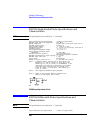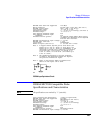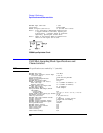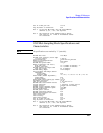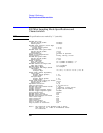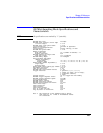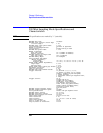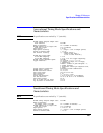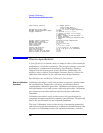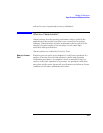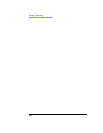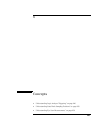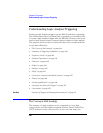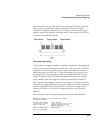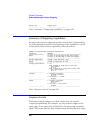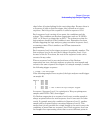
236
Chapter 5: Reference
Specifications and Characteristics
Time interval accuracy: +/- [sample period +
(chan-to-chan skew) +
(0.01% of time interval)]
Minimum data pulse width: 3.7 ns, 5.0 ns for trigger sequencing
Maximum trigger sequencer speed: 200 MHz
Trigger resources: 16 patterns (=,/=,<,>,<=,>=),
15 ranges (in range, not in range),
2 edge/glitch,
Timers = (number of pods assigned) -1
2 global counters,
1 occurrence counter per sequence level,
4 flags
Trigger resource conditions: Arbitrary boolean combinations
Maximum global counter: 16,777,215
Maximum occurrence counter: 16,777,215
Timer value range: 100 ns to 4397 sec
Timer resolution: 4 ns
Timer accuracy: +/- (10 ns + 0.01%)
Greater than duration: 5 ns to 83 ms in 5 ns increments
Less than duration: 10 ns to 83 ms in 5 ns increments
Timer reset latency: 60 ns
Data in to BNC port out delay: 150 ns
Flag set/reset to evaluation: 110 ns
What is a Specification?
A Specification is a numeric value, or range of values, that bounds the
performance of a product parameter. The product warranty covers the
performance of parameters described by specifications. Products
shipped from the factory meet all specifications. Additionally, the
products sent to Agilent Technologies Customer Service Centers for
calibration and returned to the customer meet all specifications.
Specifications are verified by Calibration Procedures.
What is a Calibration
Procedure?
Calibration procedures verify that products or systems operate within
the specifications. Parameters covered by specifications have a
corresponding calibration procedure. Calibration procedures include
both performance tests and system verification procedure. Calibration
procedures are traceable and must specify adequate calibration
standards.
Calibration procedures verify products meet the specifications by
comparing measured parameters against a pass-fail limit. The pass-fail
limit is the specification less any required guardband.
The term "calibration" refers to the process of measuring parameters
and referencing the measurement to a calibration standard rather than
the process of adjusting products for optimal performance, which is



